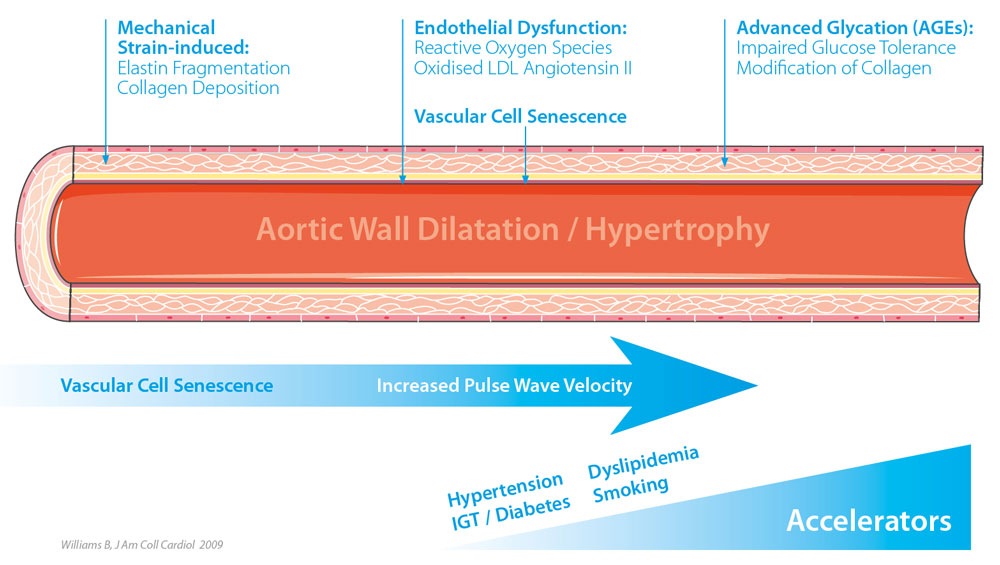Arterial Stiffness
What is arterial stiffness?
Arteries are composed of three layers and function normally by varying in diameter in response to changes in the muscular tone in the smooth muscle layer of the artery to regulate the flow of blood in the artery. Arterial elasticity is an important requirement for normal arterial function and haemostatic control. The muscles in a normal artery is compliant and changes diameter freely, however if the artery narrows then the BP rises. This contributes to hypertension and requires specific medication for successful treatment.
Why is arterial stiffness important?
Arterial stiffness in the large arteries has been shown to predict the likelihood of future cardiovascular events, such as heart attacks, heart failure and strokes, which may lead to death. Additionally, arterial stiffness has been shown to better predictor these complications than other commonly measured parameters such as conventional upper arm BP.
How does BP+ measure arterial stiffness?
BP+ technology allows rapid, simple and accurate measurement of arterial pressure wave forms, and these pressure waves provide simple measures including augmentation index and central BP which indicate large artery stiffness.
How is arterial stiffness related to BP?
Narrowed and stiff arteries increase the resistance against which the heart pumps during each beat and increases BP and cardiovascular risk. Stiff arteries allow cholesterol to stick more easily to the inner walls of the arteries, which increases BP. When the large arteries become stiff, resistance and BP increases. Conversely, when arteries are compliant and elastic, the heart does not need to work so hard to deliver blood to the rest of the body.
What can be done about high arterial stiffness?
There are many ways to reduce arterial stiffness.
Exercise helps to prevent arteries from becoming stiff and can reduce levels of stiffness – increased heart rate triggers a substance (Nitric Oxide) to be produced in the arterial inner wall, which makes arteries relax and expand.
Some (but not all) hypertension drugs reduce arterial stiffness by relaxing the muscles in the artery wall.
New drugs are being developed to target the arterial stiffness.
Your doctor can advise about the best treatment and management for vascular health.


